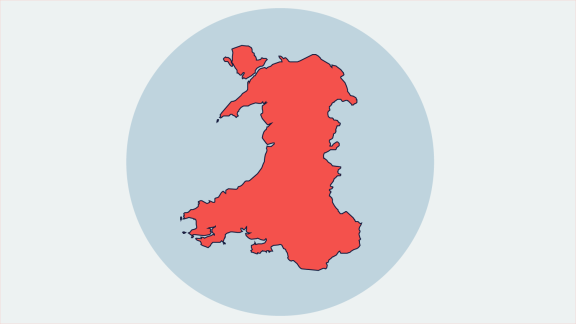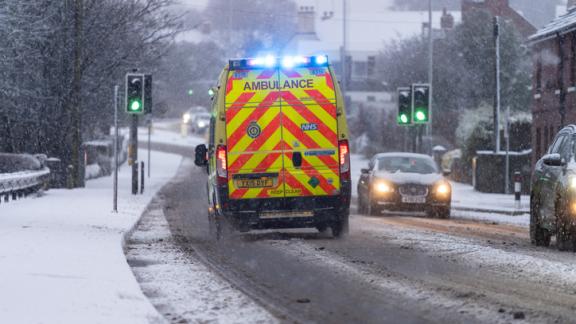How is the NHS structured in Wales?

The structure of the NHS in Wales, or indeed the wider health and care system, is complex and differs across each of the four UK nations. From devolved parliaments and governments to local health boards, NHS trusts, special health authorities, Public Service Boards and Regional Partnership Boards, there are a whole host of bodies and structures that help make up, and support, the NHS in Wales.
What do we mean when we say health is devolved?
With the creation of the Senedd (formerly known as the National Assembly for Wales) in 1999, responsibility for health and social care services in Wales lies with the Senedd (Welsh Parliament) and the Welsh Government. The Welsh Government is led by the First Minister and a cabinet, including a Cabinet Secretary for Health and Social Care, who develop and implement legislation and policy and are accountable to the Senedd.
What role does the Welsh Government have in health and care?
The Cabinet Secretary for Health and Social Care is responsible for the exercise of all powers in the health and social care portfolio. The responsibilities include: oversight of NHS Wales; health and social care strategy; NHS Wales performance and escalation; health protection, improvement and public health; primary care; patient experience and social care.
The Health, Social Care and Early Years Group (HSCEY) in Welsh Government is the department responsible for the NHS and social care. The HSCEY advises the Welsh Government on policies and strategies, including relevant legislation and funding for NHS organisations and other related bodies. The group is headed by the Director General for Health and Social Services, who is also the Chief Executive of NHS Wales. The Chief Medical Officer, Chief Nursing Officer and Chief Social Care Officer are members of the group and support ministers and the Director General in discharging their responsibilities.
What is NHS Wales?
Unlike in England, there is no single legal body called NHS Wales. NHS Wales is made up of several organisations that provide a range of healthcare services. The NHS in Wales currently comprises seven local health boards, three NHS trusts and two special health authorities.
What are local health boards?
Local health boards (LHBs) were established under the National Health Service (Wales) Act 2006 (NHSW Act 2006). The seven LHBs are responsible for planning, commissioning and providing local healthcare services to address local needs. Responsibilities include securing the delivery of primary, community and secondary care services alongside specialist services for their areas. These services include dentistry, optometry, pharmacy and mental health services. They are also responsible for delivering services in partnership, improving physical and mental health outcomes, promoting well-being and reducing health inequalities across their population.
The LHBs are:
What are the NHS trusts?
NHS Trusts were also established under the NHSW Act 2006. There are currently three NHS trusts in Wales, each with an all-Wales focus. These are:
What are special health authorities?
Special health authorities are established by a Welsh Minister for a specific purpose or function which is given to them under the NHSW Act 2006. There are currently two special health authorities in Wales. These are:
Who are the other supporting bodies in Wales?
In addition to the local health boards, NHS trusts and special health authorities, there are several organisations who support NHS organisations and healthcare services.
How does the NHS work with other public sector partners?
Public Service Boards (PSBs)
NHS organisations in Wales work with a range of public sector bodies through PSBs. PSBs were established in 2015 to bring together local public service leaders to assess and address the well-being needs of their areas, as part of the Well-being of Future Generations (Wales) Act 2015. The Act originally established a board for each of the 22 local authorities in Wales. However, some PSBs have since merged across local authority boundaries resulting in 13 PSBs currently covering the whole of Wales.
The members of each PSB typically include leaders from the local authority, the LHB, fire and rescue authority, Natural Resources Wales, as well as representatives from the voluntary sector, Welsh Government, the police forces, probation services and other organisations that have an interest in the well-being for that area. The duties of the PSBs include assessing the state of economic, health, social, environmental and cultural well-being in their areas, known as the ‘well-being assessment’, setting local objectives that are designed to maximise their contribution to Wales’s well-being goals and publishing a Well-being Plan.
Regional Partnership Boards (RPBs)
RPBs were established in April 2016 as part of the Social Services and Well-being (Wales) Act 2014. RPBs aim to improve the well-being of the population while also improving the delivery of health and care services. There are seven RPBs covering the LHB footprint, which implement joint area plans and pool budgets for the benefit of the local population. The current members of each RPBs include representatives from the LHB, local authorities, housing, third and independent sectors and unpaid carers.



